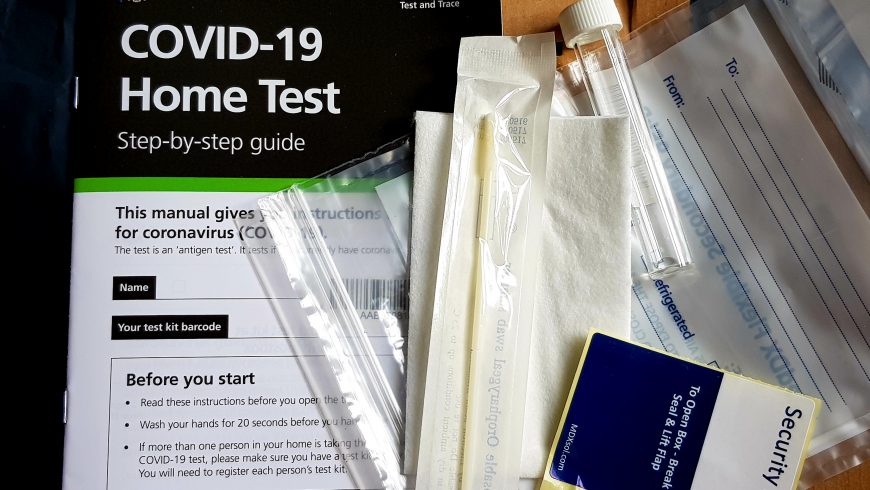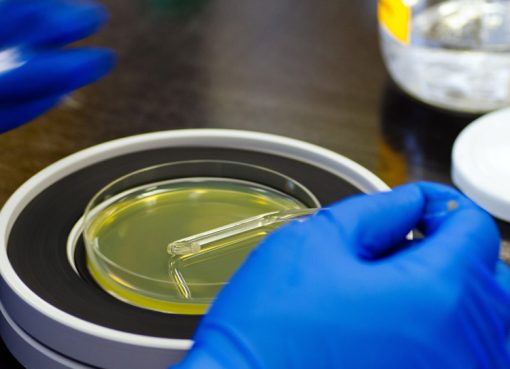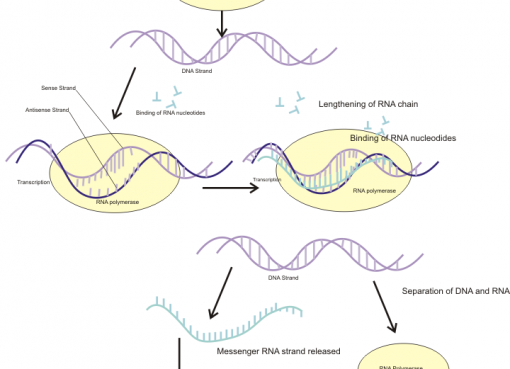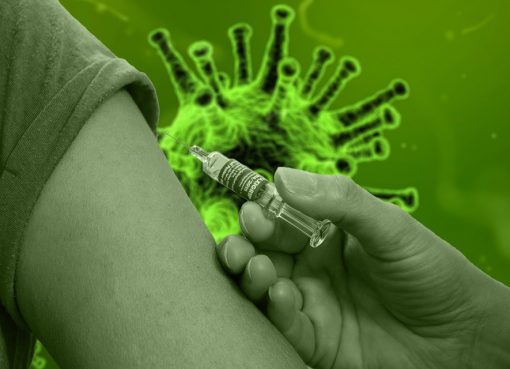Self-testing COVID-19 kit
The US Food and Drug Administration (FDA) have approved the first self-testing COVID-19 diagnostic kit to be used at home. It is a molecular test based on real-time loop mediated amplification reaction for detection of SARS-COV-2. The kit is commercialized as the Lucira COVID-19 All-In-One Test Kit intended for single use. For self-testing COVID-19, nasal swab sample is collected in a vial, which is then placed in the testing unit of the kit. Within 30 minutes or less time, the light-up display unit of the kit will show the result. Currently, the test kit is authorized for prescription use only; moreover, for self-testing at home, it is recommended for individuals with age 14 or more and individuals below 14 years, the sample should be collected by healthcare personnel at point-of-care (POC) settings such as hospitals, doctor’s offices, urgent care centres, and emergency rooms. However, the result of the test is to be informed to the health authority. This diagnostic kit will lessen the burden of laboratories which are flooded with COVID-19 samples as well as one can do the test at a comfort zone and can prevent the disease from further dissemination by self-isolation at one’s home.
Detection of Environmental Pollutants using Bacteria
Water bodies are polluted by several hazardous chemicals and out of all, Sodium Lauryl Sulfate or Sodium Dodecyl Sulphate (SDS) is one of the common pollutants that harm most of the living organisms (plants or animals) either aquatic or terrestrial. SDS is a detergent which is extensively used in laundry, soaps, shampoo, toothpaste, industries, agricultural operations and laboratories. Its disposal in waterways without any treatment can deteriorate the marine biodiversity. In this regard, a group of researchers from the Indian Institute of Technology, Roorkee has designed a bacteria-base biosensor to detect SDS pollution in water bodies or in other environment. The designed biosensor consists of a genetically modified bacterium ‘Pseudomonas aeruginosa’ as the key element which can detect SDS in minute quantities and can differentiate SDS and SDBS (Sodium dodecyl benzene sulfonate).
Sniffer-dogs to detect COVID-19 patients
Although, dogs cannot replace the PCR machine but scientists claim that sniffer-dog is a good option to detect hundreds of COVID-19 positive individuals in crowded areas like airports or markets. Many trials were conducted by using sniffer-dogs to detect coronavirus in the sweat of passengers in the airports of UAE, Finland, United States and Lebanon. It is documented that in Finland and Lebanon, dogs could detect coronavirus among the airport passengers prior to development of symptoms. In a study conducted in Lebanon, it was concluded that sniffer-dogs were able to detect 92% coronavirus cases, which were further confirmed by PCR. Thus, sniffer-dogs could be very promising in economically backward countries as well as at the time of testing kit deficiency during coronavirus outbreaks or pandemics. Moreover, use of sniffer-dogs to detect COVID-19 positive individuals was found to be accurate, reproducible, fast and cheap.
CRISPR-Cas9 based COVID-19 Testing Kit from India
Tata Medical and Diagnostics Ltd. (TataMD) in collaboration with CSIR have developed the world’s first CRISPR-Cas9 technology based diagnostic kit for detection of SARS-COV-2 infection. This kit uses FNCAS9 Editor-Limited Uniform Detection Assay (FELUDA), which is a CRISPR-Cas-9 platform and the kit will be available as TataMD CHECK. It is a paper strip based assay coupled with image-based visual output and in laboratory condition, the overall testing duration is about 75 minutes for RNA-isolated samples. The Drug Controller General of India (DCGI) and ICMR have endorsed that it will be available very shortly in the diagnostics centre of India.
An update on Covid Vaccine
The global race for development of COVID-19 vaccine is still on. However, Phase-III interim results of three Covid vaccines developed by Pfizer/BioNtech, Oxford University/AstraZeneca and Moderna have been released and were found to be promising. The protection rates of three vaccines were almost 90% or more. On 2nd December 2020, the Medicines and Healthcare products Regulatory Agency (MHRA) of UK has granted temporary approval to Pfizer/BioNtech vaccine and evaluation is under process for emergency use authorization (EUA) status from US FDA. Still more than 50 vaccines candidates are in different phases of clinical trial but none has completed the Phase III trial with full documentation.
Source: 1. https://en.wikipedia.org/wiki/COVID-19_vaccine




